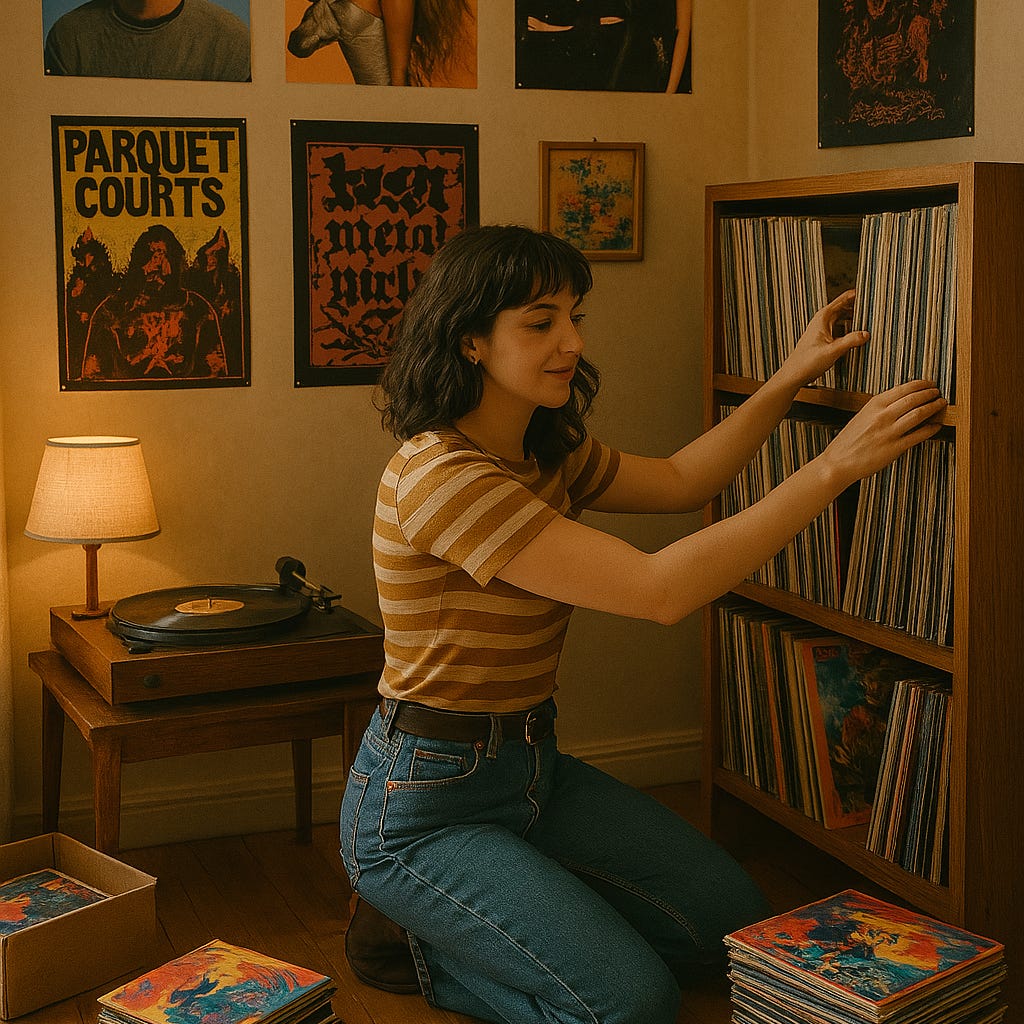How artists can get recommended more in ChatGPT and Claude
Music SEO for AI search tools
If you are not a subscriber of The Fanbase Builder, join the hundreds of artists, creators, and music industry executives who receive it for free.
Let’s dive into today’s topic:
How artists can get recommended more in ChatGPT and Claude
Improving visibility for artists in ChatGPT's and Claude’s responses when people ask for music recommendations involves a combination of classic SEO, metadata optimisation, and optimising presence across sources that tools might reference.
Why it matters
Music discovery happens through recommendations, and AI tools like ChatGPT Search and Claude Web Search are emerging as new recommendation channels.
As people turn to these AI assistants for music suggestions, it becomes more valuable for artists to understand how to optimise their presence for these platforms.
Traditionally, artists get recommended through:
Word-of-mouth from friends and family.
Venue and festival line-ups.
Social media and influencer mentions and music usage.
Algorithmic recommendations on streaming platforms.
Google Search rankings.
Now people use AI search tools more as a replacement for Google Search (the official Chrome plugin changing the default search engine to ChatGPT Search has 3 million users), it’s plausible that listeners are increasingly asking ChatGPT and Claude questions like:
“What are the best emerging indie artists?”
"I'm looking for local new artists to listen to"
“What artists play music like Fred Again..?”
"I like techno. Who's playing this weekend in Madrid?”
Understanding how to improve visibility in AI search results offers artists a new avenue for discovery and potentially enhances their discoverability across all digital spaces.
How it works
Like traditional recommendation algorithms, AI search tools collect information from structured sources across the web. Here's how artists can optimise their presence to increase their chances of being recommended:
Optimise information everywhere ChatGPT looks.
Crawler bots pull data from trusted, structured, and relevant websites. Artists should establish a presence on structured platforms and databases to boost their visibility in ChatGPT and Claude.
Ensure accurate listings on music databases like MusicBrainz, Discogs, AllMusic, RateYourMusic, AlbumOfTheYear, etc.
Keep artist profiles on DSPs up to date (Spotify, Apple Music, YouTube Music).
Wikipedia inclusion significantly boosts AI recognition.
Leverage music press and blog coverage.
AI search tools learn from public media, it helps to get mentioned in press.
Secure mentions in music publications and blogs that AI tools frequently reference.
Submit music to Hype Machine-indexed blogs that track buzz across genres.
Even smaller media placements in structured content help AI associate artist names with genres or moods.
Determine search keywords for the artist's brand and use them everywhere.
Identify and consistently use keywords related to the artist's brand, genre, mood, scene, and similar artists. Use these keywords everywhere.
Use descriptive language that matches how users might search (e.g., "mellow synth-pop like Beach House").
ChatGPT Search likes Reddit.
Reddit is structured and easy for machines to search.
Encourage mentions in music-focused subreddits.
Engage authentically rather than self-promoting.
Provide context to music and other content.
Add annotated lyrics to Genius.
Create detailed, keyword-rich descriptions for YouTube videos.
Implement schema.org structured data on the artist's website to help AI understand content relationships.
Yes, but..
Many tactics simultaneously improve traditional search engine ranking and recommendation algorithms. It’s not like we’re inventing the wheel here.
I haven’t found data on music recommendations through ChatGPT. I’m sure it happens, but it isn’t easy to assess the current impact.
Claude Web Search is not available at my location yet (despite being a paying customer). I could only test it in ChatGPT.
This article provides a broad overview that requires more explanation on specific points (like the schema.org markup). I expect to dive into this in specific newsletter editions soon.
AI search tools are evolving rapidly, and their reference sources and weighting may change
Take action now
Artists could start by auditing their current presence on ChatGPT Search by asking them to search for their artist name.
Your thoughts
Further reading
How to Rank in ChatGPT Search: Core Ranking Factors for SearchGPT SEO (Rock The Rankings)
SEO for ChatGPT search: 4 key observations (Search Engine Land)
Why artists should focus on what they can control (The Fanbase Builder)
Learn how other creators optimise their YouTube videos (The Fanbase Builder)
How to leverage user intent (The Fanbase Builder)
Retrieving catalogue data using the Spotify Web API (The Fanbase Builder)



Very helpful, thanks for sharing.